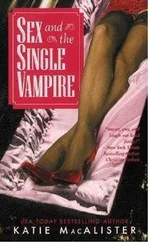Richard Burton - Vikram and the Vampire
Здесь есть возможность читать онлайн «Richard Burton - Vikram and the Vampire» — ознакомительный отрывок электронной книги совершенно бесплатно, а после прочтения отрывка купить полную версию. В некоторых случаях можно слушать аудио, скачать через торрент в формате fb2 и присутствует краткое содержание. Жанр: foreign_antique, foreign_prose, на английском языке. Описание произведения, (предисловие) а так же отзывы посетителей доступны на портале библиотеки ЛибКат.
- Название:Vikram and the Vampire
- Автор:
- Жанр:
- Год:неизвестен
- ISBN:нет данных
- Рейтинг книги:3 / 5. Голосов: 1
-
Избранное:Добавить в избранное
- Отзывы:
-
Ваша оценка:
- 60
- 1
- 2
- 3
- 4
- 5
Vikram and the Vampire: краткое содержание, описание и аннотация
Предлагаем к чтению аннотацию, описание, краткое содержание или предисловие (зависит от того, что написал сам автор книги «Vikram and the Vampire»). Если вы не нашли необходимую информацию о книге — напишите в комментариях, мы постараемся отыскать её.
Vikram and the Vampire — читать онлайн ознакомительный отрывок
Ниже представлен текст книги, разбитый по страницам. Система сохранения места последней прочитанной страницы, позволяет с удобством читать онлайн бесплатно книгу «Vikram and the Vampire», без необходимости каждый раз заново искать на чём Вы остановились. Поставьте закладку, и сможете в любой момент перейти на страницу, на которой закончили чтение.
Интервал:
Закладка:
‘When the king and the ministers and the officers and the courtiers saw Vasantasena, and her spouse carrying the baby, they recognised her from afar. The Raja exclaimed, “Lo! this is the very singing girl who went forth to bring back the devotee.” And all replied: “O great monarch! thou speakest truly; this is the very same woman. And be pleased to observe that whatever things she, having asked leave to undertake, went forth to do, all these she hath done!” Then gathering around her they asked her all manner of questions, as if the whole matter had been the lightest and the most laughable thing in the world.
‘But the anchorite, having heard the speeches of the king and his courtiers, thought to himself, “They have done this for the purpose of taking away the fruits of my penance.” Cursing them all with terrible curses, and taking up his child, he left the hall. Thence he went to the forest, slaughtered the innocent, and began to practise austerities with a view to revenge that hour, and, having slain his child, he will attempt thy life. His prayers have been heard. In the first place they deprived thee of thy father. Secondly, they cast enmity between thee and thy brother, thus dooming him to an untimely end. Thirdly, they are now working thy ruin. The anchorite’s design is to offer up a king and a king’s son to his patroness Durga, and by virtue of such devotional act he will obtain the sovereignty of the whole world!
‘But I have promised, O Vikram, to save thee, if such be the will of Fortune, from impending destruction. Therefore hearken well unto my words. Distrust them that dwell amongst the dead, and remember that it is lawful and right to strike off his head that would slay thee. So shalt thou rule the universal earth, and leave behind thee an immortal name!’
Suddenly Prithwi Pala, the giant, ceased speaking, and disappeared. Vikram and his son then passed through the city gates, feeling their limbs to be certain that no bones were broken, and thinking over the scene that had occurred.
We now are informed how the valiant King Vikram met with the Vampire.
It was the spring season when the Raja returned, and the Holi festival 32 32 The Hindu Saturnalia.
caused dancing and singing in every house. Ujjayani was extraordinarily happy and joyful at the return of her ruler, who joined in her gladness with all his kingly heart. The faces and dresses of the public were red and yellow with gulal and abir, – perfumed powders, 33 33 The powders are of wheaten flour, mixed with wild-ginger root, sappan-wood, and other ingredients. Sometimes the stuff is thrown in syringes.
– which were sprinkled upon one another in token of merriment. Musicians deafened the citizens’ ears, dancing girls performed till ready to faint with fatigue, the manufacturers of comfits made their fortunes, and the Nine Gems of Science celebrated the auspicious day with the most long-winded odes. The royal hero, decked in regal attire, and attended by many thousands of state palanquins glittering with their various ornaments, and escorted by a suite of a hundred kingly personages, with their martial array of the four hosts, of cavalry, elephants, chariots, and infantry, and accompanied by Amazon girls, lovely as the suite of the gods, himself a personification of majesty, bearing the white parasol of dominion, with a golden staff and tassels, began once more to reign.
After the first pleasures of return, the king applied himself unremittingly to good government and to eradicating the abuses which had crept into the administration during the period of his wanderings.
Mindful of the wise saying, ‘if the Raja did not punish the guilty, the stronger would roast the weaker like a fish on the spit,’ he began the work of reform with an iron hand. He confiscated the property of a councillor who had the reputation of taking bribes; he branded the forehead of a sudra or servile man whose breath smelt of ardent spirits, and a goldsmith having been detected in fraud he ordered him to be cut to shreds with razors as the law in its mercy directs. In the case of a notorious evil speaker he opened the back of his head and had his tongue drawn through the wound. A few murderers he burned alive on iron beds, praying the while that Vishnu might have mercy upon their souls. His spies were ordered, as the shastra called ‘The Prince’ advises, to mix with robbers and thieves with a view of leading them into situations where they might most easily be entrapped, and once or twice when the fellows were too wary, he seized them and their relations and impaled them all, thereby conclusively proving, without any mistake, that he was king of earth.
With the sex feminine he was equally severe. A woman convicted of having poisoned an elderly husband in order to marry a younger man was thrown to the dogs, which speedily devoured her. He punished simple infidelity by cutting off the offender’s nose – an admirable practice, which is not only a severe penalty to the culprit, but also a standing warning to others, and an efficient preventative to any recurrence of the fault. Faithlessness combined with bad example or brazenfacedness was further treated by being led in solemn procession through the bazar mounted on a diminutive and crop-eared donkey, with the face turned towards the crupper. After a few such examples the women of Ujjayani became almost modest; it is the fault of man when they are not tolerably well behaved in one point at least.
Every day as Vikram sat upon the judgment-seat, trying causes and punishing offences, he narrowly observed the speech, the gestures, and the countenances of the various criminals and litigants and their witnesses. Ever suspecting women, as I have said, and holding them to be the root of all evil, he never failed when some sin or crime more horrible than usual came before him, to ask the accused, ‘Who is she?’ and the suddenness of the question often elicited the truth by accident. For there can be nothing thoroughly and entirely bad unless a woman is at the bottom of it; and knowing this, Raja Vikram made certain notable hits under the most improbable circumstances, which had almost given him a reputation for omniscience. But this is easily explained: a man intent upon squaring the circle will see squares in circles wherever he looks, and sometimes he will find them.
In disputed cases of money claims, the king adhered strictly to established practice, and consulted persons learned in the law. He seldom decided a cause on his own judgment, and he showed great temper and patience in bearing with rough language from irritated plaintiffs and defendants, from the infirm, and from old men beyond eighty. That humble petitioners might not be baulked in having access to the ‘fountain of justice,’ he caused an iron box to be suspended by a chain from the windows of his sleeping apartment. Every morning he ordered the box to be opened before him, and listened to all the placets at full length. Even in this simple process he displayed abundant cautiousness. For, having forgotten what little of the humanities he had mastered in his youth, he would hand the paper to a secretary whose business it was to read it out before him; after which operation the man of letters was sent into an inner room, and the petition was placed in the hands of a second scribe. Once it so happened by the bungling of the deceitful kayasths (clerks) that an important difference was found to occur in the same sheet. So upon strict inquiry one secretary lost his ears and the other his right hand. After this petitions were rarely if ever falsified.
The Raja Vikram also lost no time in attacking the cities and towns and villages of his enemies, but the people rose to a man against him, and hewing his army to pieces with their weapons, vanquished him. This took place so often that he despaired of bringing all the earth under the shadow of his umbrella.
Читать дальшеИнтервал:
Закладка:
Похожие книги на «Vikram and the Vampire»
Представляем Вашему вниманию похожие книги на «Vikram and the Vampire» списком для выбора. Мы отобрали схожую по названию и смыслу литературу в надежде предоставить читателям больше вариантов отыскать новые, интересные, ещё непрочитанные произведения.
Обсуждение, отзывы о книге «Vikram and the Vampire» и просто собственные мнения читателей. Оставьте ваши комментарии, напишите, что Вы думаете о произведении, его смысле или главных героях. Укажите что конкретно понравилось, а что нет, и почему Вы так считаете.












